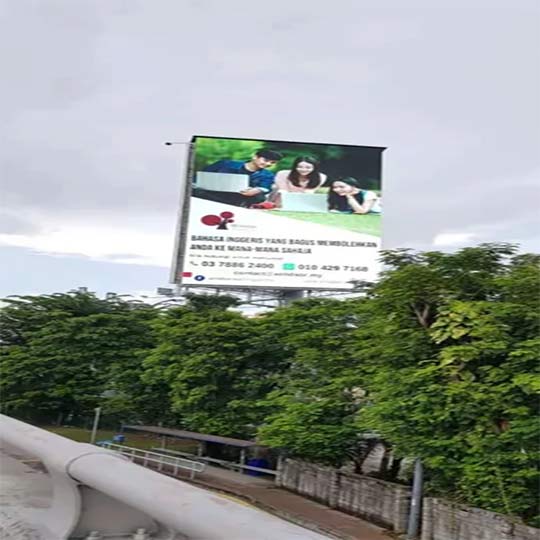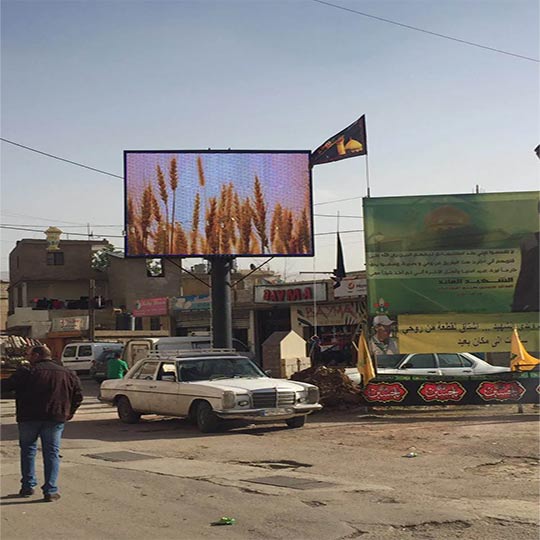
led screen price may vary substantially based on the size, building requirements, and technological features. According to Estimates, outdoor LED screens price may cost anywhere from $40,000 to $450,000. Pixel pitch and screen size are the two most essential elements in deciding the cost of your screen. To put it simply, a screen with a bigger screen and a lower pitch cost more money.
LED screen rentals may cost anything from $2,500 to $15,000 for a single day. The first day's price is generally higher than the price of the subsequent days. The lower end of the spectrum would be a tiny mobile screen, while the upper end would be a massive modular panel. The screen's setup and operation are frequently included as part of the rental fee.

How to get started?
An expert LED screen company should be the initial step in your next outdoor LED display project. LED installation and rental projects need years of knowledge from experts familiar with the technology and logistics involved in a successful implementation. Your objectives, requirements, and led screen price will all be considered by the experts. Outdoor LED displays may be used in various ways, and they're growing increasingly common as technology improves. If you'd like to learn more about these eye-catching displays, or if you'd like to purchase one, here is all the information you need.
What is an outdoor LED screen?
Large outdoor video walls using LED technology are known as outdoor LED screens. Many panels are linked together to create a video wall, making it possible to create an expansive and flexible display. To be seen outside, these panels use high-brightness LEDs and weather-resistant hardware. Many people can observe large displays from a distance because of their large size. More than one application may be found in digital billboard displays: monument signs, stadium jumbotrons, and more.
Technical Factors to Consider Before Getting a LED Display
·
LED Screen Brightness
LED is the apparent option for outdoor applications as the display technology with the highest luminance. The brightness of a video wall is expressed in nits. Lightness increases as the nit rating increases. To be seen in direct sunshine, outdoor panels must have a minor brightness level of 5,000 nits and may have a maximum brightness rating of 10,000+ nits.
·
Outdoor LED Screen Durability
An IP rating determines an LED panel's ability to withstand the elements. The abbreviation "IP" is followed by two numbers referencing an IP rating. Indicated by the first and second digits, the panel is protected against solids. IP65 certification is required for outdoor video walls. In terms of protection against solids and low-pressure liquids, the IP65 standard is the best available,
·
LED Screen Pixel Density
There are two types of pixels: those that can be read and those that can only be read. On the LED panel, they're those specks of light. Hundreds of thousands, if not millions, of these tiny dots create a single, massive picture. Pixel pitch is a metric used to express the degree of compactness of individual pixels. An LED panel's pixel pitch is the distance between the centres of two pixels. P is a common abbreviation for Pixel Pitch (number). If you were to use a P10 screen, the pixels would be spaced 10 millimetres apart, The better the Durability, the higher the price of the LED Screen. Consider the pixel pitch while determining viewing distances. Closer viewing distances need lower pitches (increasing pixel density). Billboards, for example, benefit from a higher pitch since they are meant to be seen from a distance. Because they are intended to be seen from a greater distance, outdoor video walls often feature a higher pixel pitch than interior ones.
SMD VS. DIP
The colors green, red, and blue make up a pixel. Three distinct colors are soldered together using DIP, and three different colors soldered together with SMD. In terms of picture quality and colour accuracy, SMD LEDs tend to be superior to DIP LEDs. Both of these technologies are often used in outdoor settings.
LED Screen Size
They typically measure between one- and four-square meters. More panels are needed to build a larger screen. Larger sizes are required for seeing from a distance. Your budget and how you want the space to appear and feel should all be taken into account when deciding on the size of your video wall.
Aspect Ratio
The ratio of a display's width to height determines the screen's aspect ratio. An aspect ratio of 1:1 or square means that the screen's width and height are equal. If a screen had a 2:1 aspect ratio, it would have a width twice as wide as its height. 16:9 is the most common aspect ratio for video. To show 16:9 material, your video wall must also be 16:9 to do so. For custom aspect ratio screens, bear in mind that you'll need to tailor your content to suit the screen proportionally.
LED Screen Construction
As a result of this collaboration, you and your LED supplier will develop a building plan that is tailored to your needs.
